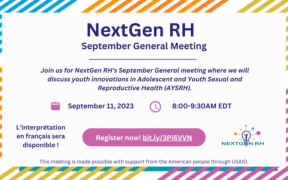Tag:
youth/young people

NextGen RH September Meeting
September 13, 2023
Join us on September 11 for the NextGen RH September meeting as we explore youth innovations in AYSRH! Youth are the driving force behind many creative programs and initiatives to […]
chat_bubble0 Comment
visibility0 View













